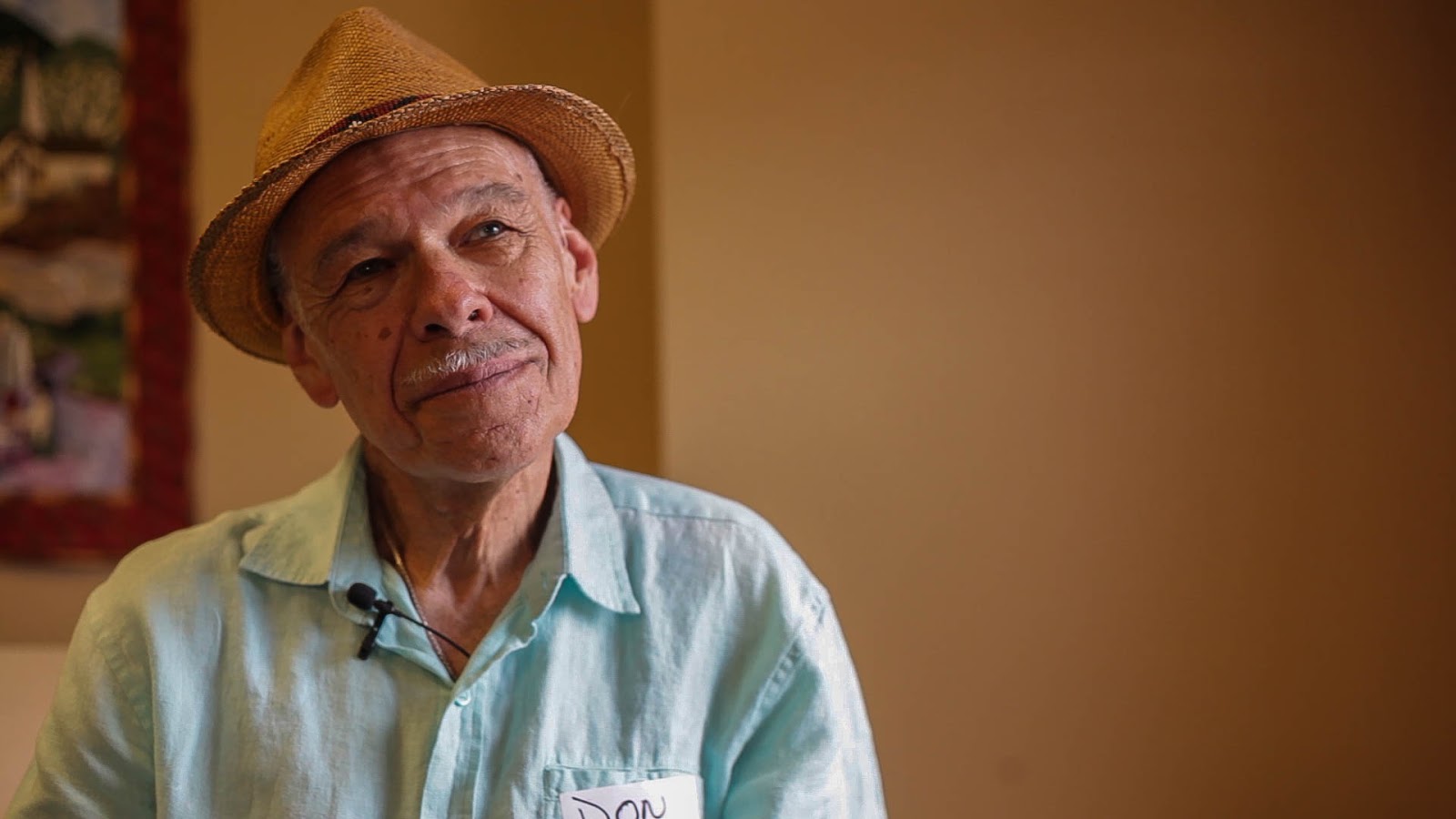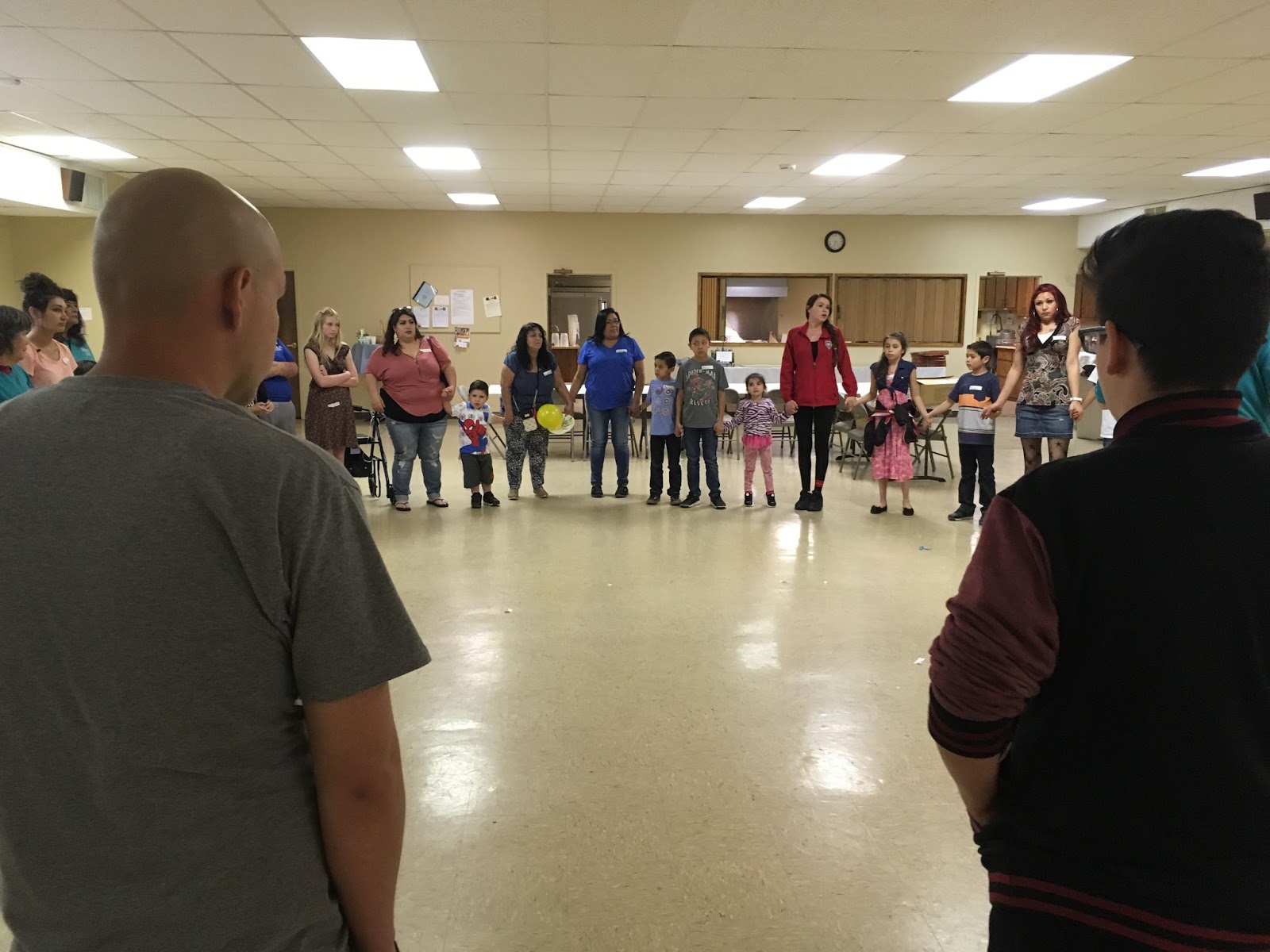“I just want to live a sober life, away from drugs and the streets,” said 29-year-old Diane Monique-Rodriguez, who has a history of drug abuse and was recently re-incarcerated for two and a half weeks. “Now I’m just trying to get on my feet and better myself as a person.”
Monique-Rodriguez is one of hundreds who have attended meetings held by Wings for LIFE International, an Albuquerque-based organization addressing the cycle of incarceration in New Mexico.
“Programs like this keep me off of the streets and from using drugs and alcohol,” said Monique-Rodriguez, who has three children: a 14-year-old daughter, an 11-year-old son and a 6-year-old son. For two years now, she has not had custody of her children
“This last time I was incarcerated I really thought about my life,” Monique-Rodriguez said. “I’m getting old. I need to get on with my life and do productive things… and actually be a mother to my children.”
Executive Director and Founder Ann Edenfield Sweet established Wings for LIFE International in 1995 and also introduced the program in India in 2006 and Kenya in 2013.
The organization assists former prisoners in developing skills they need to rejoin society. It provides workshops and presentations on subjects like building a resume and applying for a job. Classes are also provided for at-risk children and prison inmate spouses, which help them refrain from falling into similar patterns of criminal behavior.

Don Shapiro, the current chairman of the board of directors at Wings for LIFE International, has worked with children from incarcerated families for over 10 years at his full-time job with the New Mexico Children, Youth, and Families Department (CYFD). Shapiro helps children reintegrate into society upon release from juvenile detention facilities. He says programs like Wings help the process.
“I found out, after a couple of years of working with these young people, that a large percentage of the young people had parents in prison, either currently or sometime during their childhood,” Shapiro said. “As we began to talk about that, I became aware of how that affected them.”
Shapiro says these juveniles would describe a feeling of being stigmatized and losing the connection to the incarcerated parent.
“They didn’t have an adult that was loving them and teaching them how to be a good person,” Shapiro said.
From 2011-12, more than 52,000 children in New Mexico reported having a parent who, at some point in their lives, served time in jail or prison, according to a 2016 Kids Count report from the Annie E. Casey Foundation. These children represent approximately 10 percent of New Mexico’s entire child population.
According to Wings for LIFE International’s website, these children are at a “critical risk of dropping out of school, getting involved in violence, and teen pregnancy, due to the fact that most of them are living in poverty-stricken, high crime areas with few or no positive adult role models.”
Shapiro says approximately seven out of 10 children with an incarcerated parent also end up in the criminal justice system.
“Some of the families end up following that route because they just can’t seem to make it any other way, and they think there’s going to be some kind of economic benefit, which there isn’t,” Shapiro said.
To address this issue, Shapiro says Wings for LIFE International follows a strategy based on 40 Developmental Assets necessary for healthy growth, published by the Search Institute in the city of Minneapolis. This list includes external support assets such as peer influence, and internal support assets such as positive identity. He says this list works as a kind of conceptual model for developing strength within people, families, and communities, and also teaches important life skills.
Shapiro says the programs at Wings also help young people think about how they treat other people. He says the goal of the organization is to “be together with other people, have a beautiful dinner, sit and have conversation, learn from expert speakers, and to develop life skills—everything from how to write a resume, to finding a job, to setting a table, and shaking hands in a way that people will respect you and you will show respect for them.”

Wings for LIFE International meets every Monday night in Albuquerque at either St. John’s United Methodist Church or the Second Presbyterian church. Meetings are open to people of all denominations. The group also hosts three community “Family Days” each year: a Christmas party, an Easter party, and a Back-To-School party.
“There’s a sense of community, a sense of companionship. People are sitting together at a table having dinner, and teaching each other things. They’re giving each other tips, they’re learning about the skills of life, and they’re able to see people who are positive,” Shapiro said. “I haven’t seen anything like it—it’s magical.”
Dominic LeDoux, a staff member at Wings for LIFE International who also works full-time at the Santa Fe County Correctional Facility, says his job allows him to see how rough the incarceration of a loved one can be on a family.
“In a lot of cases the mom didn’t do anything wrong, or the children didn’t do anything wrong, but they’re suffering just as much as the person incarcerated,” LeDoux said. “All of a sudden you have a single mother trying to raise three kids, and you don’t realize that they’re out on their own and they have nowhere to turn. This program is aimed at helping people in that kind of situation.”
LeDoux says the best part of his work at Wings for LIFE International is being able to support and care for former prisoners and their families when they are unable to do so themselves.
“These people have been in prison, they’ve been knocked down, they’ve been shunned,” LeDoux said. “But just to have someone remember your name, just to have someone say ‘Hello John, how are you doing today?’ puts a smile on their face. I think that’s the best part of my job.”
Wings for Life International works with parole and probation officers and a number of other organizations, such as the New Mexico Women’s Recovery Academy and the nonprofit YDI, which focuses on New Mexico’s youth.
LeDoux says former prisoners who volunteer at Wings are able to fulfill legal requirements mandated by the court. Oftentimes volunteers choose to remain at Wings, even after they are fully released, he says.
The organization is also open to working with Central New Mexico Community College (CNM) and University of New Mexico (UNM) students who are studying service learning and need to fulfill certain requirements for working with nonprofits. LeDoux says college students have increasingly shown interest in the program, and approximately 30 CNM students signed up to volunteer this past semester.
Follow John & Brenna on Twitter